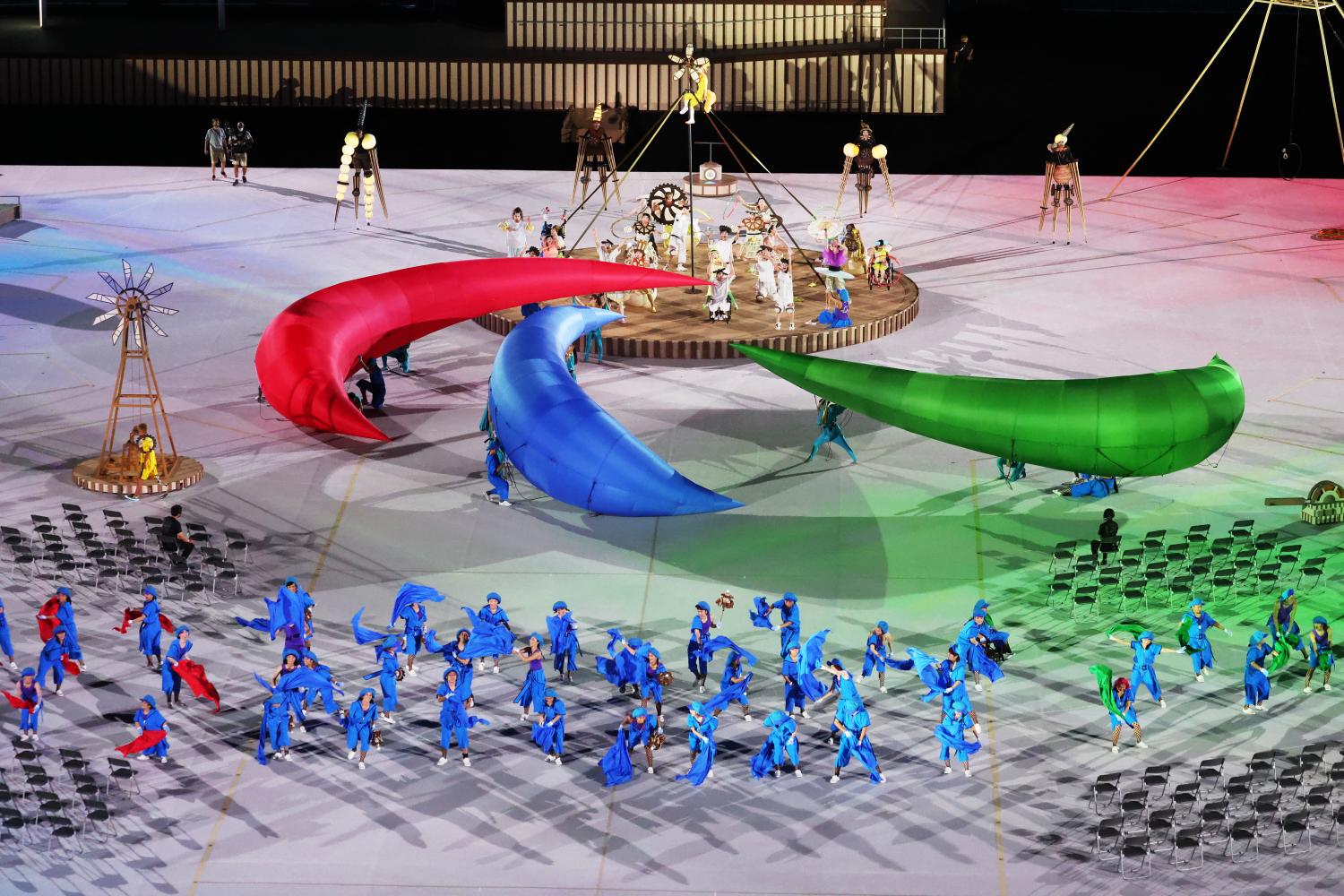
TOKYO: The Tokyo Paralympics started on Tuesday night following a one-year postponement at a time when the Covid-19 pandemic remains a major concern in the city holding the world's largest sporting event for people with disabilities.
As he did for the recent Tokyo Olympics, Japanese Emperor Naruhito declared the Paralympics open at the National Stadium.
The 68,000-capacity main venue was a sea of empty seats during the opening ceremony because only VIPs, including International Paralympic Committee (IPC) president Andrew Parsons, were allowed to attend as a precaution against the spread of the virus.
Tokyo is the first city to host the Paralympics twice, having staged the 1964 edition. But this time, the Games are being held under conditions that nobody had imagined before Covid-19 took hold, with safety measures preventing regular spectators from attending, as was the case during the Olympics.
A record 4,403 athletes from 161 countries and regions including Thailand, as well as a small refugee team, are taking part in the tournament through Sept 5, in what the IPC said is a "remarkable achievement" given the difficulties posed by the global health crisis.
IPC chief Parsons has stressed the Games are the "most important" in history, believing they will help the voices of people with disabilities be heard as they have largely been "left behind" during the pandemic.
Since athletes from Afghanistan could not travel to Tokyo after the Taliban retook control of the country earlier this month, the country's flag was carried by a volunteer during the opening ceremony to represent "solidarity" with those in the Central Asian nation.
Organisers hope the Tokyo Paralympics will contribute to building a more inclusive society that embraces people's differences.
While the 17-day Tokyo Olympics ended without a major outbreak of infections among athletes and officials, some Paralympians may have a higher risk of suffering more serious symptoms due to possible underlying health conditions. Tokyo governor Yuriko Koike said before the opening ceremony the host city will work hard towards realising a "wonderful games" that are also "safe and secure."
Due to the impact of the pandemic, athletes from Samoa, Kiribati, Tonga and Vanuatu were unable to travel to Japan, putting the total number of participating nations and regions below the record of 164 set at the 2012 London Games.
The Tokyo Games have 539 medal events across 22 sports. Taekwondo and badminton have been added to the programme for the first time, while other sports include swimming, athletics, boccia and wheelchair tennis.
Under the Covid-19 "playbook" that must be followed by athletes, participants are required to be tested on a daily basis, in principle, and they must wear face masks and maintain social distancing including when they are in the athletes' village.
The competition will be fierce, with stars including Germany's world record-setting long jumper Markus Rehm, dubbed the "Blade Jumper", and Japan's wheelchair tennis legend Shingo Kunieda.
China are expected to continue their long-running Paralympic gold-medal dominance, but Japan will be hoping their record 254-strong team can repeat the country's Olympic gold rush.
Thai hopefuls
There are 74 Thai athletes at Tokyo as officials hope to bring home four to six gold medals.
Among the best hopes are wheelchair racer Pongsakorn Paeyo, boccia star Watcharaphon Vongsa, table tennis player Rungroj Thainiyom, archer Anon Aungaphinan, and taekwondo exponent Khwansuda Phuangkitcha.
Other medal hopefuls include wheelchair racer Prawat Wahoram, Thailand's most decorated Paralympian with seven golds, wheelchair fencer Saysunee Jana, and badminton player Nipada Saensupa. The Kingdom won six gold, six silver and six bronze medals at the 2016 Paralympics.
Thailand first took part in the Paralympics in 1984 and have since won 19 gold, 24 silver and 26 bronze medals.